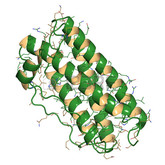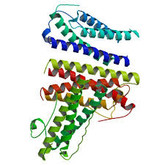Biosimilars
WHO should finalize its BQ guidance
According to authors from the US, the World Health Organization (WHO) should finalize its Biological Qualifier (BQ) guidance. Distinguishable naming will allow quick and accurate tracing of the manufacturer of biologicals, should adverse events occur and improve patient safety by reducing confusion and mishaps. This will ensure that developing nations, including those in the Middle East and North Africa (MENA) region, have access to high quality, affordable medicines [1].
British diabetologists issues position statement on biosimilar insulin
The Association of British Clinical Diabetologists (ABCD) has issued a position statement on the use of biosimilar insulin. The statement summarises information on the advantages and disadvantages of using biosimilar insulins and gives the association’s position on when biosimilar insulins be used [1].
Biosimilars launched in the US at a significant discount
Epoetin alfa and pegfilgrastim biosimilars have been launched in the US at a significant discount compared to their originators.
Positive results for adalimumab and etanercept biosimilars from Sandoz
On 23 October 2018, Sandoz, the generics division of Novartis, presented positive phase III data for its adalimumab and etanercept biosimilars [1, 2].
FDA approves first rituximab biosimilar Truxima
On 28 November 2018, the US Food and Drug Administration (FDA) approved its first rituximab biosimilar, Truxima (rituximab-abbs), the first biosimilar for the treatment non-Hodgkin’s lymphoma (NHL).
Boehringer Ingelheim and Sandoz abandon biosimilars
Boehringer Ingelheim has decided to abandon biosimilars outside the US. While Sandoz has decided not to pursue biosimilar rituximab in the US.
Positive results for Chinese rituximab and trastuzumab copy biologicals
Researchers from Shanghai Henlius Biotech have presented positive phase III study results for their rituximab [1] and trastuzumab [2] copy biologicals.
Positive phase I results for Fresenius Kabi’s pegfilgrastim biosimilar
Fresenius Kabi, one of the independently operated business segments of global healthcare group Fresenius, announced on 9 October 2018 that results from two phase I studies of its pegfilgrastim biosimilar (MSB11455) had met their primary endpoints.
EC approval for pegfilgrastim biosimilars Pelmeg and Ziextenzo
In November 2018, pegfilgrastim biosimilars, Pelmeg and Ziextenzo, received European Commission (EC) approval.
Switching from reference products to biosimilars: the European perspective
The number of biosimilars receiving marketing authorization has grown steadily over the past several years [1, 2] and is expected to continue growing in the future. Particularly when biologicals are prescribed for the treatment of chronic diseases, switching patients from the originator biological to the biosimilar is increasingly becoming an option, allowing for a considerable reduction of public health expenditure. This article [3] provides an overview of current approaches in Europe to switching patients to treatment with biosimilars.













